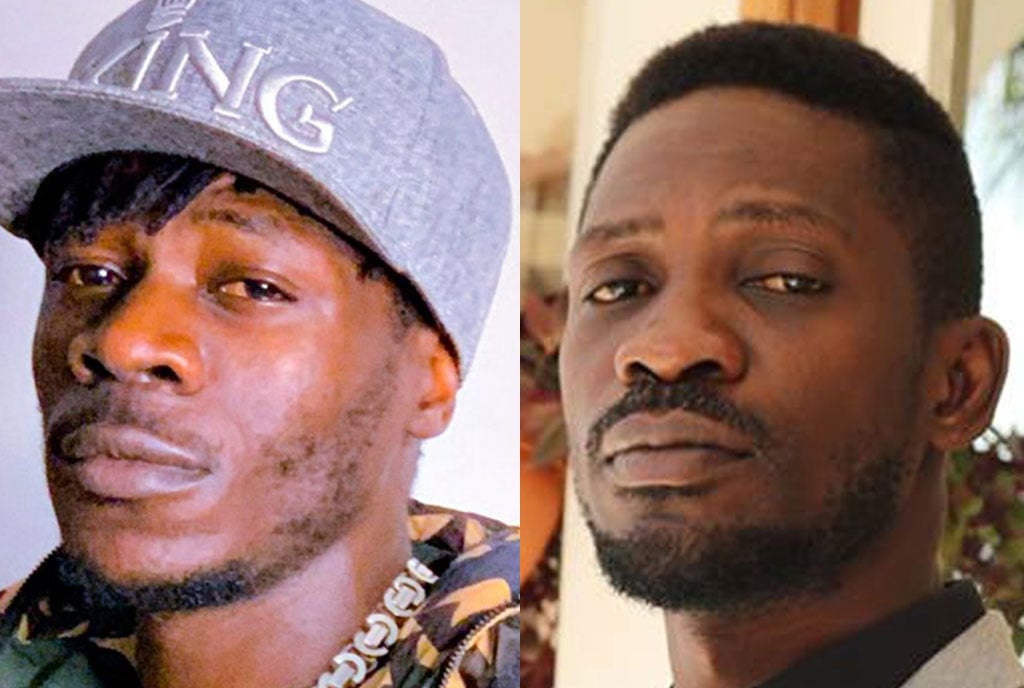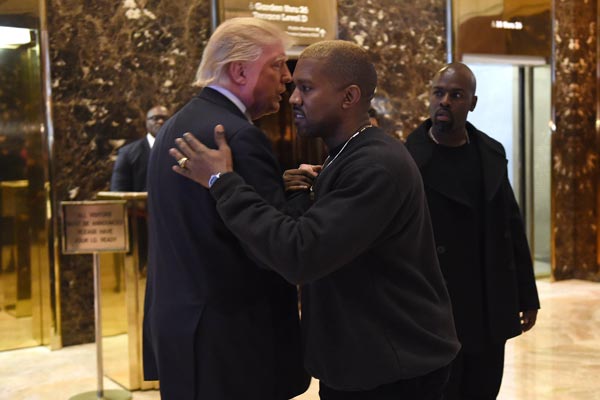Prime
Alien Skin vs Bobi Wine and why it’s hard to separate music from politics

Ugandan musician Alien Skin (L) and artiste turned politician Robert Kyagulanyi aka Bobi Wine. PHOTO/FILE
What you need to know:
- Early this week, Alien Skin noted that he was ready to welcome President Museveni into the ghettos and even collaborate with him.
Many things have been said about artistes and their role in a revolution.
For instance, art already carries the burden of being a mirror of society, something that has been re-echoed in interviews by artistes of today such as Hozzier to greats like Nina Simone.
The songstress intimated that it’s the duty of an artiste to talk about things that are happening in the world they live in.
In Uganda, art and politics have co-existed for years and while at it, a complicated relationship has been built. The relationship between art and politics has three fronts, one includes politicians using popular music on rallies to build their appeal, cue in President Museveni dancing to Eddy Kenzo’s Stamina in 2010 to assure Ugandans that he was still strong.

Artiste Edrissa Musuuza, alias Eddy Kenzo. Whereas his two initial songs did not pick any steam, Sitya Loss didn’t come up against only local artistes. PHOTO/FILE/COURTESY
The other front could include politicians making art, such as the late Kato Lubwama continuing his comedy and acting when he was a legislator, Bobi Wine releasing music even when he was on the campaign trail and Museveni releasing Another Rap and his other less renowned Yengoma.
The third example is usually about song lyrics, songs such as Fela Kuti’s politically explicit song Zombie.
Political music
The East African music scene has been political for a time. In 2001, for instance, artistes like Eric Wainana had already taken up activism, addressing issues such as corruption in Nairobi through songs like Nchi Ya Kitu Kidongo.
Ugandan singer Ronald Mayinja had in more than an incident poked the wrong side of the authorities with intriguing questions in songs such as Tuli Kubunkenke, or the provocative creation that was Africa.
“The songs, especially Tuli Kubunkenke was used in the 2006 elections that some politicians thought I had been paid to do the song,” Mayinja once noted.
Over the years, there was a continued sense of social justice activism through music. In 2014, for instance, Ambasa Mandela, then front man for Kenyan act Sarabi Band and Wainaina were arrested after they took part in anti-graft protests.
Both artistes were armed with their guitars and were passing on a message in the protests, using a song.
In Uganda, Bobi Wine was decrying the corruption, tribalism and the cost of living using his single Time Bomb.
These are different ways that Ugandans usually attach politics to art, specifically music.

Singer Robert Kyagulanyi, his wife Barbara Intungo and colleague Ronald Mayinja leaving Kasangati shortly after his nomination to tun for MP on May 31, 2017. PHOTO/MICHAEL KAKUMIRIZI
On June 29, 2017, when Bobi Wine was declared winner of the Kyadondo East by-elections, art had officially taken its cause to the state that unlike before, was hard to ignore.
Suddenly, politicians were aware that music doesn’t only function as an important means to arouse pleasure, excite societies, but above all, they were aware that with or without political explicitness, music could easily be a tool that can be used to undermine power.
For instance, whether Bobi Wine sang about power, for young people in Kamwokya and Magere, where he stays, he is a politician that speaks the language they understand.
Enter Bobi Wine
Bobi Wine’s win for both artistes and politicians was a revelation.
“Today, artistes need to know that the authorities are keenly watching them, the government now knows how powerful art can be,” says Edward Ssendikadiwa, an art critic with talk show Talk and Talk of Dembe FM.
But Bobi Wine’s win had come off after 12 artistes came together to endorse candidate Museveni’s re-election in the 2016 campaigns.
For a moment, there was a divide. Artistes that had been on the President Museveni’s campaign song were shunned more than they were uploaded. While those that had not been on the song were often praised by the public.
Many of the artistes that had been on Tubonga Nawe song such as Iryn Namubiru, Haruna Mubiru and Mun*G, among others, first withheld music since the public was threatening a boycott.
Ssendikadiwa says even when there was talk of boycotting artistes, none of the 12 involved in the Tubonga Nawe project was boycotted out of the industry.
“Many of these people were struggling musically even before the project. Some had a name, but were musically off the radar,” he says.
Unfortunately, even if a boycott was never affected, artistes choosing to side with particular political party, politicians has continued becoming poisonous. Lines have since been drawn that there are artistes for and against.
Boycott?
Bebe Cool has, for instance, been able to have the President grace his concerts, but at the same time, he has had many performances disrupted by hecklers and on more than one occasion, he has been pelted with bottles while performing.
Other artistes that associate with the ruling National Resistance Movement (NRM) party such as Big Eye, Full Figure and Catherine Kusasira have also had a fair share of the audience’s wrath.
At the moment, Alien Skin is enjoying the limelight, thanks to songs such as Sitya Danger, Party and Twayiseko Dda, among others. The artiste’s star took a sharp rise after he was beaten by fellow artiste Pius Mayanja, alias Pallaso.
With Pallaso gearing up for his concert, Abtex, a city promoter, scheduled Alien Skin’s concert to counter the formers and the attendance was massive.
Pallaso got an endorsement from Bobi Wine and so did Alien Skin.
Early this week, Alien Skin noted that he was ready to welcome President Museveni into the ghettos and even collaborate with him.

President Yoweri Museveni. PHOTO/FILE/AFP
This did not land well with Bobi Wine’s loyalists and they took to the keyboard to blast the new kid on the block.
National Cultural Forum’s Emma Carlos Mulondo, formerly an artiste manager, says politics has fused with music, but believes things should never get to levels of artistes being attacked.
“In the US and other countries, I believe artistes freely support the politicians they want and the audience is okay with it,” he says.
In other places
Indeed Mulondo is right, in other places, artistes can support whoever they feel like. Previously, John Legend, Jay-Z and Beyonce threw their weight behind former US president Barack Obama’s two campaigns. A big number of Nigerian artistes gave their all for Peter Obi in the just concluded Nigerian elections.
However, endorsing unpopular politicians has also been disastrous for some. American vocalist and Grammy award winning singer Chrisette Michelle’s career took a turn when she performed at Donald Trump’s inauguration in 2017.

Singer Kanye West and then US President-elect Donald Trump talk at Trump Tower after meetings on December 13, 2016 in New York. AFP PHOTO
Kanye West has had a number of backlash moments, but the outstanding one has been when he wore Trump’s Make America Great Again, most people talked about not listening to him again and others asked streaming platforms to put his music down.
In Kenya, during the just concluded elections, Kenyan band Sauti Sol condemned Raila Odinga, a candidate in the election for using their music without permission. They threatened to sue.
Kenyans responded by unfollowing them on Twitter and unsubscribing from their YouTube channel.
Sophie Gombya, a former president of the Uganda Musicians Association, says this is what they usually mean by asking artistes to get politics out of the industry.
“Alien Skin has been doing well, people loved his music and his realness, but he speaks loosely and now he’s dividing his audience,” she said.

Former president of the Uganda Musicians Association Sophie Gombya. PHOTO/FILE
Gombya notes that at the moment, the Ugandan industry is sinking and the biggest reason is because artistes are broke, something that many people are exploiting to use them.
“We are broke and what we sell most of the time is our image, an image we can’t afford. Thus we are willing to do anything for money, to service the lifestyle,” she says.
The relationship between the music industry and the audience has been deteriorating for years. During the Covid-19 pandemic, artistes made various trips to Gulu for meetings with Gen Salim Saleh, the chief coordinator of Operation Wealth Creation.

Some of the artistes who attended a retreat in Gulu in July 2021 take a group photo with Operation Wealth Creation chief coordinator Gen Salim Saleh (centre). PHOTO/COURTESY
With news making rounds that they were getting paid in Gulu and the fact that most Ugandans were struggling to make ends meet, there was general anger towards sections of artistes that went to Gulu.
“Various things have divided the industry and some of it has been misinformation. For instance, Uganda has a lot of problems, no one is giving artistes bags of money as they make it sound, yet people are being hated for appearing in Gulu,” Gombya says.




